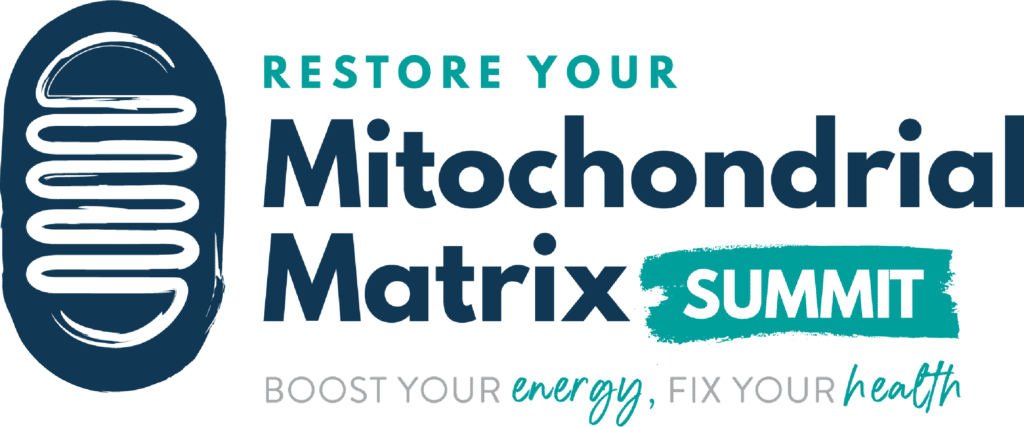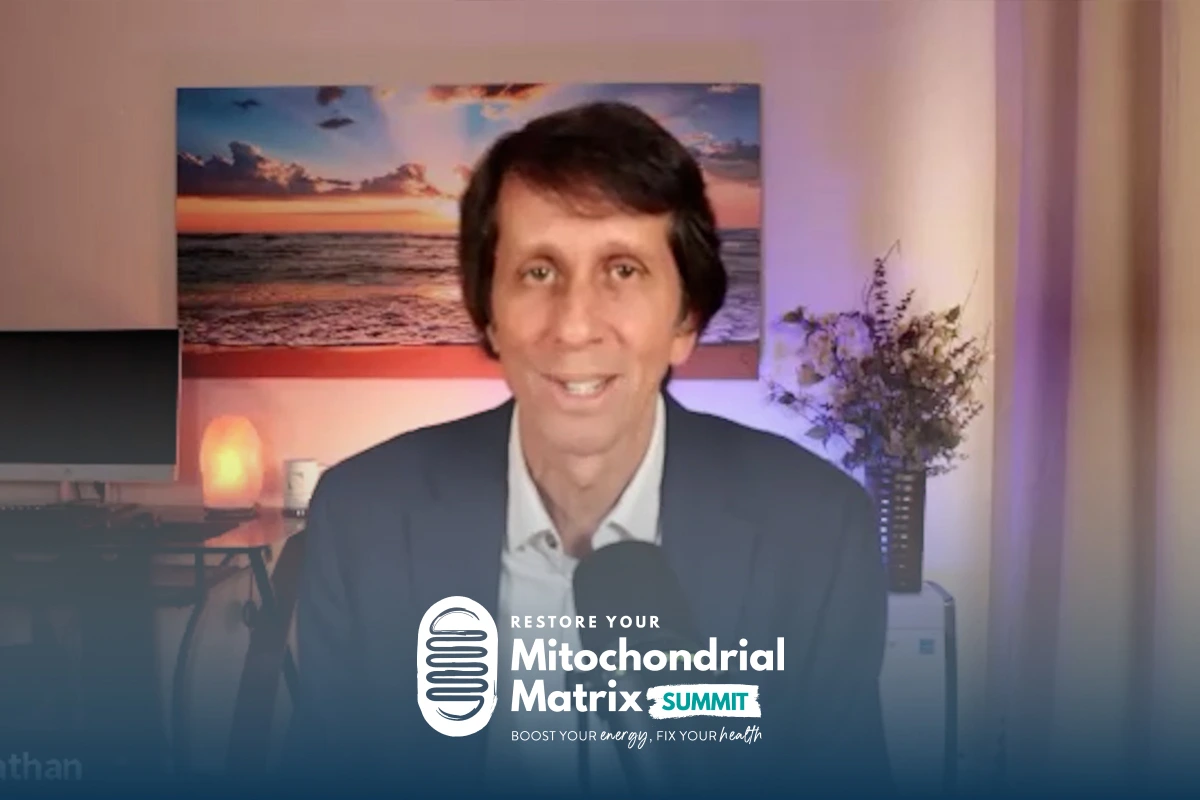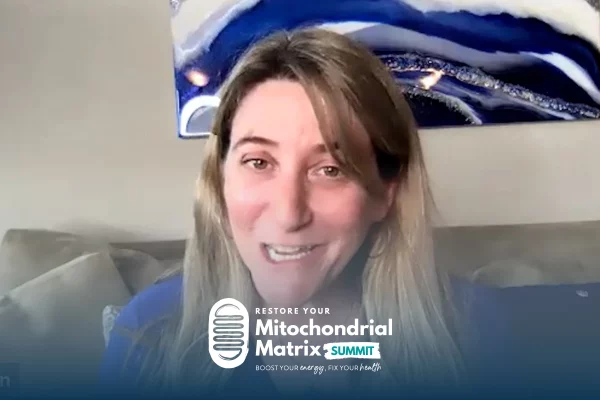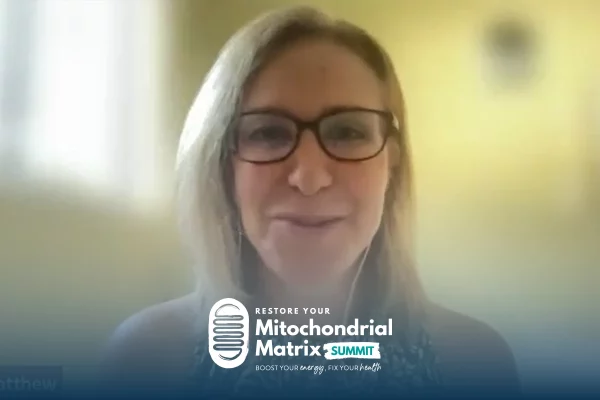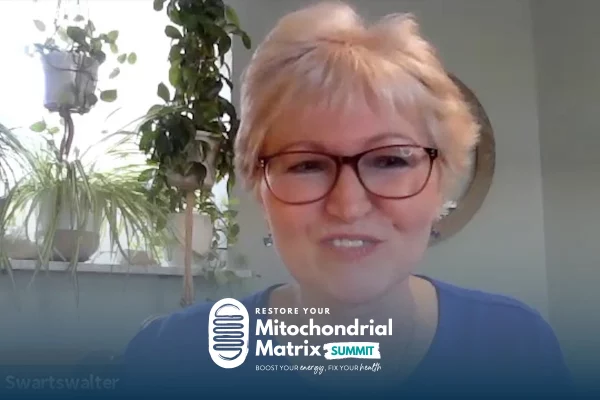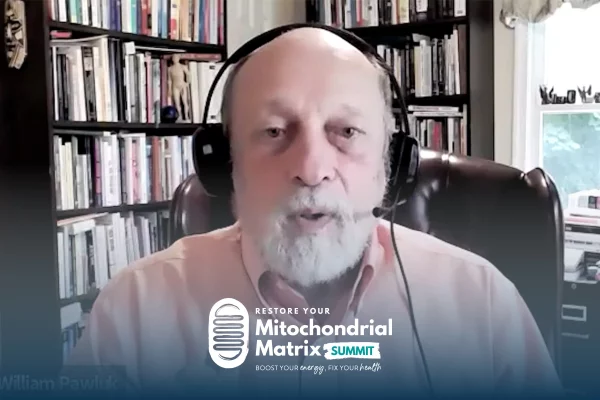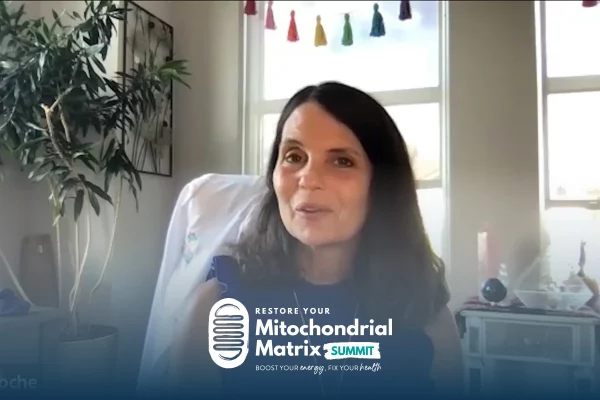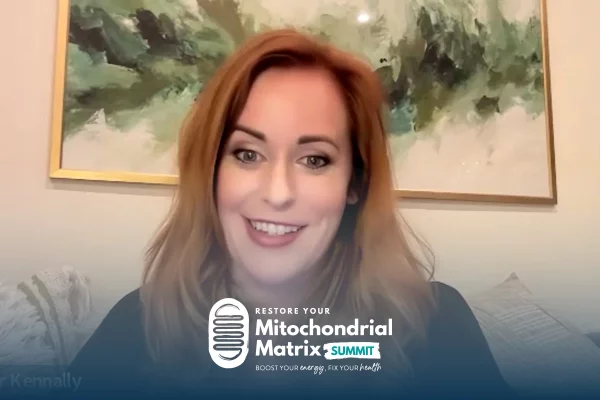Join the discussion below
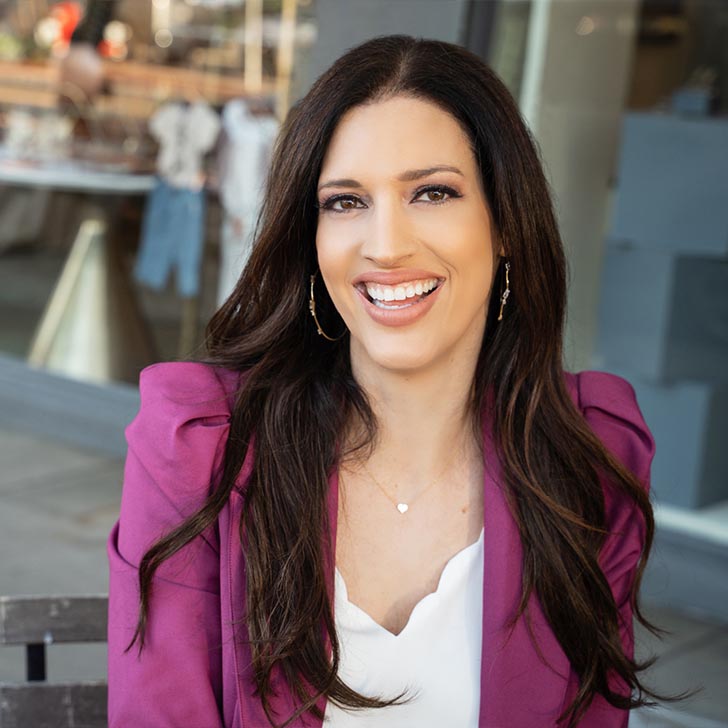
Laura Frontiero, FNP-BC, has served thousands of patients as a Nurse Practitioner over the last 22 years. Her work in the health industry marries both traditional and functional medicine. Laura’s wellness programs help her high-performing clients boost energy, renew mental focus, feel great in their bodies, and be productive again.... Read More
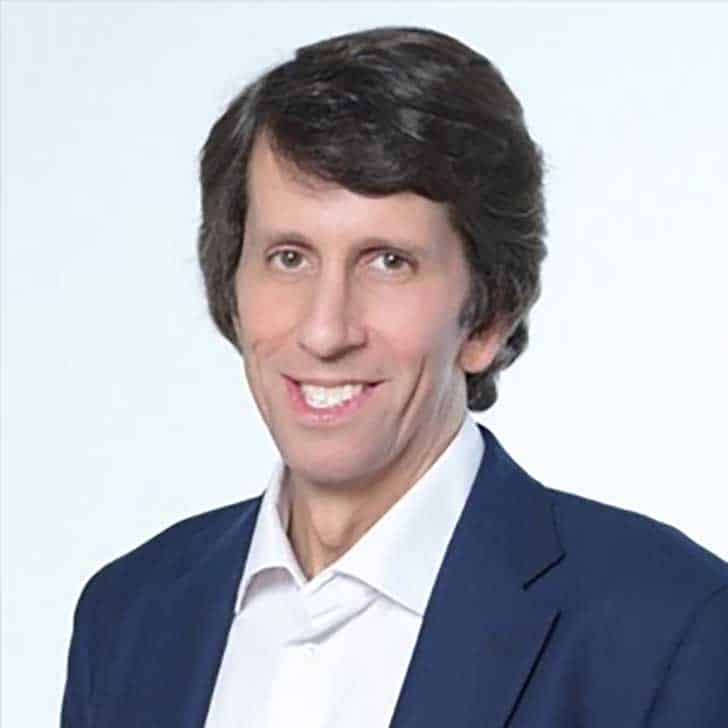
Jonathan Landsman is the managing director of NaturalHealth365.com(link is external) and host of the NaturalNews Talk Hour – a free, weekly health show sponsored by NaturalHealth365.com and NaturalNews.com(link is external). Landsman is helping millions of people worldwide create health and physical fitness through a variety of educational and entertaining articles, teleconference calls, live... Read More
- Diet and supplement pitfalls to avoid and the biggest mistakes made by ‘healthy people’
- How dental issues are connected to cancer
- Why dealing with negative emotions is step 1 in the healing journey
- Anticancer lifestyle tips
Related Topics
Anger, Cancer, Cellular Health, Emotional Well-being, Emotions, Exercise, Fear, Guilt, Healthcare Providers, Immune System, Leaky Gut, Meditation, Mitochondria, Nutrition, Organic Food, Resentment, SupplementsLaura Frontiero, FNP-BC
So welcome back to another episode of the Restore Your Mitochondrial Matrix Summit. I’m your host, Laura Frontiero. I’m bringing you experts to help you boost your energy and fix your health so you can build the life you love, and today my special guest is Jonathan Landsman. Hi, Jonathan. Welcome to the summit.
Jonathan Landsman
Hi, Laura. Thanks for having me. It’s a pleasure to be here. Very important topics we’ll be covering today, no doubt. If anyone is interested in cellular health, this is a good place to be.
Laura Frontiero, FNP-BC
It is, and you’re a bit of a legend in the health space, so I’m really honored to have you here. Really glad that you’re gonna be sharing your expertise today. And you’ve been around for 35 years, you’ve been in the health and fitness industry. You’re the host of NaturalHealth365.com, which is actually one of the most popular natural health websites in the world, and it offers a free newsletter, podcast, videos. You really cover it all and you give the best information in science and natural health solutions. And I can’t believe this, you’ve created over 500 online programs. That’s incredible. I know what it takes to just build one online program, and you’re the creator of six best selling online educational programs. You’ve got programs on cardiovascular, fatty liver docu-class, and so much more. And you really are an industry expert in cancer and we’re gonna cover that today. We’re gonna cover cellular health and avoiding cancer cell growth naturally. And we’re gonna go into some really important topics that nobody’s covered on this summit so far. So I’m really excited to get started. Just welcome, welcome Jonathan.
Jonathan Landsman
Well, thanks Laura. That’s a huge introduction. But definitely I don’t take most of the credit. Just thank God, I’ve been able to interact with so many great integrative healthcare providers. I’ve also had my own incredible personal experience that I’m looking forward to sharing with you, but definitely these are important topics because I see this all the time, Laura, people don’t get these kind of things right. They struggle and struggle, even when trying so hard to do other things. And that’s exactly what we’re gonna probably touch on first when it comes to emotions, if that’s where you wanna go first.
Laura Frontiero, FNP-BC
Yes, I do wanna talk about emotions, but I would also love to know your personal story. So however you wanna weave that in. If you wanna weave it in first or tell us as we go, whatever suits you.
Jonathan Landsman
I think you covered it really well in terms of everybody just wanting to know the basics here and get to the meat and potatoes of this. And I’ve been in the industry for over 35 years, so brick and mortar health and fitness facilities and taking care of literally thousands and thousands of people every single year through that, and then transitioning to online. But in the online world, I’ve met a lot of great people. When we’re focusing in specifically on cancer, Stanislaw Burzynski, a blessed memory, Dr. Nicholas Gonzalez, very dear friend of mine. And so a lot of different people in the cancer space that have spoken to me over many, many years in terms of different things that they’ve done, things that they’ve witnessed. So there’s no doubt, Laura, as I get older and as I’ve spoken to so many hundreds and hundreds of providers, they too have been changing. I started by thinking, “Food is it.” And don’t get me wrong, food is important. And they started that way with physically telling people, “You gotta change the way you eat.
It’s the most important thing.” And I’ve heard time and again, how many of these providers, including myself, I’m seeing it time and again, much more as like I say as I age, that emotions are a bigger part of it, because you can do a lot of the really healthy foods and supplements. We’re gonna talk about some things that I’ve noticed over the years that people have gotta kind of consider I think a little bit more than what they’ve thought about in the past, perhaps. And certainly very little of this stuff that we’re talking about today is published online. Most people are not talking about these things at all. But there’s no doubt, things like fear and anger, resentment, guilt, the biggest thing, the biggest umbrella problem when it comes to emotional wellbeing is fear. And obviously I think inherently in that word, whatever it means for each person, it’s very difficult to think about these things and to talk about it because we’re so afraid about one thing or another.
But I do know for a fact that when somebody really handles that fear, they overcome it, they transform, if you will, it’s not like they didn’t have it before, they don’t understand what it is, but they just look at it in a whole different way. And we can certainly talk about that a lot more. Once that happens, life is so much better. And when it comes to cellular health, it’s extremely important because our cellular physical health, the way our cells function, the way we take in nutrients, the way we get rid of those waste products, and how everything in between functions so well or not is so strongly based on how we emotionally are.
And if we’re in a very fearful state, certainly that’s lowering our immune system, it’s severely compromising our cellular function. People are so concerned these days about leaky gut, not absorbing enough nutrition. People hear this idea of never eat your food when you’re very, very upset about something or angry. Hello, this is all about emotions. And so if we don’t get these emotions right, and really kind of look at them differently and not have them control our life, we don’t do that, we’re in for a lot of trouble, even if we’re taking organic food in and the best supplements, trying to meditate, exercising on a regular basis. I have so many stories, Laura, people who have actually said to me, “Emotions, that was the thing that made the difference.” And the healthcare providers are now saying it to me more than ever in the last few years that this is what we have to get right.
Laura Frontiero, FNP-BC
Yes, yes. I’m so glad that we’re starting here and that we’re going off the beaten path of what most people on this summit are talking about. In my own experience, working with clients, trying to restore immune health, gut health, they’ve done everything right, but the one piece that they’ve just not been willing to dig into and to heal is the emotional trauma or the negative feelings or the low vibrational feelings. And I’ve actually had conversations with people before where I said, “I can’t help you any further until you heal this piece. And so I’m gonna refer you to somebody who specializes in this.” And I have to tell you, sometimes people get upset about that and offended. They want a supplement, they want a food, they want some special thing that will solve the problem. And they don’t wanna address this huge piece that’s uncomfortable, that you might have to revisit some negative things that occurred in your life. So can you dig a little deeper there? Why are emotions step one? Why do you focus on this so much, especially with your work around cancer, chronic disease?
Jonathan Landsman
Right, because of what you just basically said, it is central to how our body physically works. I think the difficulty, Laura, is that a lot of people are conditioned, certainly in the last many, many years to just do what you were talking about just recently for the last minute or so about looking for that magic bullet. The Western mindset is to go to a conventionally trained physician and just look for that surgery, that chemotherapy agent that I’m gonna pump through me, or some radiation therapy. I’m gonna go for several weeks, many, many sessions and just I’m done. And so it’s looking for that magic bullet. And a lot of times I feel like most people aren’t even aware of how conditioned they are to be looking at things that way. Emotions are happening countless times a day. They come into play with everything that we react to during our day. But I know from my own personal experience, this fear can look like so many other things, right?
Fear is the big emotional state that sort of drives things like anger. Laura, I was an expert at anger when I was in my 20s and I would like to say even a bit in my early 30s, and obviously it was getting better and better, but one of the biggest things that really changed it for me was looking at how anything that’s more fear based, all of these other emotions, we’re mostly angry and resentful and we expect things a certain way and they don’t happen and we’re frustrated. All of this is really borne out of this big fear umbrella, if you will. A lot of that is control. A lot of what we want is more control over our life.
We want people to just do what we want them to do for us. And when it comes right down to it, at least for me personally, Laura, it was a big realization that it’s very, very self-centered. That really hit me. And I agree with you, some people listening to this right now, what do you know? They react like very upset at listening to someone tell them that it’s a very self-centered behavior, but when you strip away everything, Laura, that’s what it is. If I’m angry at you because you’re not doing something that I want you to do, it’s about me. If you say something I don’t like, we see the way culture is today, social media encourages it. Everything’s about canceling people out who don’t do exactly what you are supposed to do, and everything’s supposed to be uniform. And you know what, Laura, that’s not the way life is, and it’s a very, very stressful way to live. Not just emotionally, mentally, but also very physically. Again, I base a lot of what I say often on the work of like Candace Pert. I don’t know if you know that individual.
She was a PhD, and blessed memory, she gave a lot to the field of the molecules of emotions, right? How our emotions, the way we feel every single day has a lot to do with how our hormones are, the chemicals that we produce. So this is a very real physical thing, even though we’re talking about emotions that are kind of hard to see. In a certain sense, once you realize this, Laura, it’s actually easy to pick up all the time. We just all intuitively know when we’re close to someone that’s always agitated and angry and resentful or feeling depressed chronically and guilt ridden. And if you even just talk about these topics with them, “Well, I don’t really know what I’m angry about. I don’t know what I’m really frustrated about.” This is a very deep thing, but when you see on the outside that someone is like that, they are truly physically troubled on the inside and you can do, like I said before, all these other things, but it’s not really gonna help until you start thinking about this a little bit more.
And I think again, pardon the pun, a lot of people are afraid to talk about this or think about these things like it’s gonna get even worse. And Laura, I’m here to say it only gets so much better. Now yes, you have to talk to someone who you really care about. Thank God I had my spouse. My wife was a great help. I’ve talked about this endlessly over the years. She really helped me to see things. And I know any man out there who knows they have a good woman out there, they’re surely gonna tell you when you’re doing things right or wrong. But all kidding aside, that was a good thing. When I was younger, I didn’t view it that way. I didn’t wanna hear it. And the struggles kept going and the stress kept going. And I have no doubt the level I was at in my 20s, if I kept grinding that out for 30 plus years more where I am today, I would’ve most definitely been in way worse shape, physically, mentally, emotionally, spiritually, you name it, everything. So listening, being able to process things, look at things differently, become other centered is so important. I hope I’m not going on too long, right? To get a little bit more other centered here, I’m just staring at the camera here, looking at everybody watching us. But I just wanna get a little feedback. Am I going a little too off? Or what do you think about what I’m saying?
Laura Frontiero, FNP-BC
No, I think this is critical. I think back in all the people I’ve cared for over my 20 years in medicine. And I think any practitioner who’s been around a while has seen a 45 year old drop dead of a heart attack or a 35 year old have a rare cancer or a 50 year old just have compounded multiple chronic diseases. And one of the huge pieces, of course there’s toxins in the environment and there’s genetics and there’s all these things, but the emotional piece is so vital. We’ve also on the flip side, we’ve seen people heal their bodies and heal their cancer and heal their chronic health conditions by shifting their way of being and their emotion and how they react to a situation. So this is a long overdue discussion, I think for most people listening, it’s very important.
Jonathan Landsman
So one other thing I’d like to add, Laura, and that is that not to get too off topic, but yes, and we’re gonna get into some physical things very soon. Yes, sometimes physical things are so off. The way you eat, toxicity that’s in your body physically, that when you relieve that physical burden, you will change emotionally. But it’s just important for us to talk first about the emotional state, the way we perceive things. The way we look at life is very important. No matter where we are, we can make instantaneous changes by being more other centered, right? But the bottom line is certainly mercury toxicity can make someone literally mad, right? And you can see the emotional problems, but yet if you could lift that mercury toxicity, that burden off of the body, ah, person feels much better and so that’s behaving differently.
Yes, that’s true as well. But the emotional part, if people can just start looking at how they’re reacting to things and start just practicing this idea of why did someone say what they said? Is it really worthwhile? For example, someone just called the other day for my advice because I’m older. What do you think, I gave this gift to somebody, I mean, it’s just a silly little example, and they were clearly upset by it, but still wanted to check in, should I be upset or not? I gave this gift to somebody. They got a similar gift from somebody else. And now they want, and obviously it’s a much younger person, so they’re just wondering, is this right or not? They wanted to give the gift back and exchange it for something else.
I said, “Look, there’s no problem with that. Don’t be upset. Is this someone who’s actually checking in with you? They’re being respectful. They don’t wanna hurt your feelings. They’re just being upfront with you. And they’re being honest.” Now, there’s two ways to look at it. How could that person take my gift and wanna give it back to the store and get money? It’s a silly example, but there’s a thousand examples like that where, I mean, with spouses, my goodness. I could go on and on for an hour about how my wife would say things when I was younger. I didn’t wanna hear any of them. Just for the record, Laura, most of the most significant things in the world, she was 100% right, I just had to listen to it and understand.
She loves me, she wants the best for both of us, and that’s why she’s bringing up what she’s bringing up. Stop thinking of it as she’s attacking me. And that’s a big man thing, not to get sexist or anything, but for men out there who might be looking at things immaturely, it’s a personal attack, the bottom line is stop taking everything so personally. Really start looking at life as everybody around you and everything that is happening is happening for a good reason. And now that really starts opening you up to feeling very differently and a much healthier way about everything. And that is guaranteed, guaranteed to help you with your cellular health and your immune system and any kind of serious illness that you’re dealing with, especially if you’re concerned about cancer.
Laura Frontiero, FNP-BC
Absolutely. Absolutely. I think of, I used to be that person that reacted to everything. And now after a lot of emotional intelligence work and working on my emotions, when something bad happens, I try to stay in a neutral space and think about curiosity, and curiosity about where this person is coming from instead of taking things personal. And I think if you can get to that neutral space of not taking things personal, that is hugely impactful to your health. Just pause and try to find an interpretation of the whole situation that’s working for you, not an interpretation that’s destructive to your body, to your mind, to the people around you. I’m glad we spent so much time on this topic.
Jonathan Landsman
Yeah. Just one last quick thing, Laura. And it was done by a spiritual mentor of mine who just basically said, “If we just think for a moment, a good visual, we’re human beings with our head above our heart.” So the emotions are obviously coming from the heart, our feelings, it’s all fine, it’s all good. But our body is designed that our head is above our heart and that our mind should always lead our emotions. There’s nothing wrong with our emotions and our feelings, but we should be processing them more by thinking about them more. So it’s a great tip you just gave at the end. Pause for a moment. Know that no matter what, if it’s more of a stressful emotional state you’re in, to start kicking in and thinking more about it. How can you make this better? How can you make this situation improve? You’re gonna be a lot better off.
Laura Frontiero, FNP-BC
Absolutely. Well today we’re talking about topics on the off beaten path. That’s a tongue twister. And so first one, emotions, not something that everyone’s looking at or talking to when it comes to what causes chronic health conditions and cancer. So the next kind of off the beaten path topic we’re gonna talk about today are dental issues and how they’re connected with cancer and quite frankly, all chronic disease. So this is a really important topic, so I’d love for you to shed some light on this. Why the heck is dental health so important?
Jonathan Landsman
Again, the same answer for everyone to be crystal clear about, this is certainly one particular area that everyone needs to address if they wanna avoid serious health problems. And that’s the dental health problems that happen mainly from visiting the wrong kind of dentist. There are four different areas we’ll talk about real quick. I did an entire summit on this, the Holistic Oral Health Summit, where we dive deeply into this and how to take care of it and why it’s such a problem. But without a doubt, any person who’s dealing with a cancer diagnosis, some of the top cancer clinics in the world, this is the first thing they do. The spiritual healing, the energy healing, the supplements, the foods, any of the gadgets that might be used on a person, all of that is fine and very helpful, but the first thing they’ll do is clean up issues in a mouth. Mercury-based silver fillings, millions and millions of people are walking around and slowly being poisoned by this every day.
All of these things I’m talking about, Laura, do directly impact the quality of your blood that bathes every cell in your body. It dramatically hurts your immune system. Your immune system is your best chance to detect a cancer cell that we all have, and to take care of that cell the way we want them to and get it out of the body, killed and removed, without replicating out of control. All of us are gonna live with cancer cells all the days of our life. That’s not the issue. It’s the replication out of control that eventually takes us out of this world. That’s what nobody wants. So let’s get serious about cleaning up these issues.
If you have mercury-based silver fillings in your mouth, yes, forget about what you see in the internet. They do leak out mercury vapors all the time. That’s a fact, okay? And so to get a biological dentist well trained in this who understands the impact of these issues that we’ll talk about now in the next couple minutes, and how to take care of them for you is very, very important. You cannot do this by yourself. So mercury-based silver fillings, they get them out of the body. There are better biocompatible materials that you can use. That’s what should be put in there and never have this in your body. There is no biological reason to have mercury in your body. Kills nerve endings. It’s just highly destructive on the immune system. Reeks havoc on the digestive system. Makes the bloodstream extremely toxic.
The lymphatic system, very toxic as well. Don’t do it, get it out of the body. Number two, root canal treated teeth. All root canal treated teeth. And I know what they say to you. This is a great way if you’re still in pain after a drill and fill procedure for a cavity, it’s gonna save your tooth. Big deal. Every root canal treated tooth in time, say safely 12 to 18 months, and certainly people are walking around with these things for years become fully infected in one degree or another. And then the immune system has to work so hard every day, dealing with this added toxicity. And imagine, Laura, we’re talking about mercury-based silver fillings in a mouth, infected root canal treated teeth that are spilling all of their bacteria and the waste product of those bacteria into the whole body. You’re chewing. You’re mixing it with saliva. It’s going into your digestive tract. It’s causing the leaky gut. It’s causing the blood to be toxic. All of this is going 24/7 in the body. That has to be removed. And the problem is, Laura, it’s a tricky thing to say to a lot of people who’ve never heard this information because my root canal treated tooth feels fine.
I have no pain. The tooth looks great. I don’t feel so bad. No big deal. But Laura, it’s the bathtub analogy. It’s one thing after the other, when we take that sort of cavalier attitude of, “Eh, it’s not a big deal, I only have one or two root canal treated teeth. Oh, it’s just a little sunscreen that I’m putting on my body. Oh, it’s just a little bit, I went out to a restaurant and it’s genetically engineered food and it’s non-organic. Once or twice a week, not a big deal.” And on and on and on. When these things keep going year after year, as we get older, as our minerals get depleted, as life goes on, and then we get hit with that emotional stress. You bring all of this together. Now the toxins are spilling out all over the bathtub, all over the floor. You got the floor’s gonna cave in and go down into from the second floor to the first floor.
And you’ve got a massive problem. And that’s what people are seeing in their health. “Where did this come from? I was so great for years and now I feel horrible.” It’s the ignoring of these things and letting them go on for too long. So I hope that makes it very clear. The last two, gum disease, same thing. “Ah, it’s a little bleeding gums. I’m brushing my teeth or I’m doing even a hydro-floss.” And which is good for gum disease to kind of bring it down, but if you are bleeding in the gums and you spit out and you see that blood in the sink, don’t just say, “Well, it’s not a big deal.” What if you were bleeding out from your shoulder or your back or your leg? I mean, there would be something. You would say, “Wait a minute, I gotta take care of this. This is serious.” But somehow with gum disease, it’s overlooked. And Laura, the problem is most conventionally trained dentists are terrible with this.
They are not educating people at all about any of these topics. Gum disease is happening for years and years. Pockets are getting bigger and bigger. They’re not even measuring the gum pockets with a little probe. It’s so easy to do, and most of these offices are not doing it. The people are going in for cleanings. They’re completely clueless. They walk outta the office and they’re walking around with this gum disease and there’s more toxicity lodging into their cardiovascular system, their heart, it’s polluting the blood. And again, when it comes to cancer, your blood is everything. The purer your blood, the healthier it is, the healthier your whole life is gonna be. The last one is cavitations. Not cavities, cavitations. Bone infections, a lot of times it’s coming from even properly extracted teeth. Unfortunately for many people, poorly extracted wisdom teeth as an example, where they leave the ligament in there and they don’t really fully take it out and clean it out well. This can happen whether it’s properly taken out a tooth or not, these bone infections can happen. You don’t know, similar to root canal treated teeth, you don’t necessarily know.
It’s not like you’re walking around, “Oh my God, my jaw is killing me. These bone infections, I’ve gotta go to the dentist.” You don’t see them. And most people, the single best test to kinda get an idea that something is wrong is a 3D cone beam X-ray, which is giving you that 3D look. Most people aren’t even doing that. Millions of people are getting these little bite wing X-rays, you know the little film and you just stick it in the mouth, bite down, beep. They do a little radiation for a second. They give you a snapshot. It’s not even gonna really give a good look at what’s happening in the jaw bone lower and upper where a bone infection could be festering. The single only way to know for sure if a dentist, a good, well trained biological dentist takes that cone beam X-ray, that three dimensional look. “Hey, something doesn’t look right there.” They’re still gonna have to cut, a thin little cut in the gum and go in there. And in many cases, if someone has taken care of everything else, in many cases that soft mushy rotted stuff that’s in the mouth is a problem.
And people’s health issues can be completely changed, especially when we’re talking about cancer cell growth, by just cleaning up those areas, sealing it back up, and letting the body relax. That’s the way I put it, where the immune system can now direct its strength and energy to where it belongs, detecting these cancer cells and taking care of it. So I hope I didn’t throw out too much in too short a period of time, but these are four areas that must be looked at and taken care of if you’re dealing with any health issue. Autoimmune disorders, diabetes, heart troubles, even emotional, mental, anxiety issues. Get this toxic burden from these four areas out and away from you and watch how much better you’ll feel. And Laura, I can speak from personal experience. I’ve done it myself, and man, it was great to do. I’m very thankful that I was able to do it.
Laura Frontiero, FNP-BC
This is such good information. I always say your mouth is a doorway for infection to your body. So you must address your mouth health. And can you give a tip real quick on, I know people are wondering, how do I find a biologic dentist? Do you have a good tip on how people could locate somebody like that in their area?
Jonathan Landsman
The simplest one that I know of that works really well is the International Academy of Oral Medicine and Toxicology, .com, .org, you’ll get it. IAOMT.com.org. That organization has a list of, it’s nearly 1,000 at this point, it’s hundreds and hundreds and hundreds of biological dentists that you can choose from. You may have to travel. You should make phone calls ahead of time. Listen to how the office help answers the telephone. Are they patient? Are they pleasant? Do they resonate with you? With all due respect to all of them out there, they can get certified by the International Academy of Oral Medicine and Toxicology, they could call themselves biological dentists, but at the end of the day, you have to find an office that feels right to you. And you could probably find one that’s pretty close to you. And there are dentists like this, biological dentists, integrative dentists, functional dentists that are like this throughout the world. You just have to make a little effort and ask around, but you can find them. I certainly did. Took me almost an hour and a half each way, three hours of driving, time in the chair, four different times to get rid of on four different visits my mercury-based silver fillings alone to take care of it, but it was worth the effort. Every day I thank God, one of the most significant things I did was clean up the areas in my mouth, so happy.
Laura Frontiero, FNP-BC
Excellent, and I know people are wondering about those white amalgam fillings. Do those pass the test or should those be removed too?
Jonathan Landsman
Well, when you say white amalgam, if it’s mercury and metals, it doesn’t pass the test. If it’s white filling, it’s basically plastics, right? Laura, that biocompatible type material that is way safer. That’s a thumbs up. That’s okay. But anything with metals, that’s gonna mess inside your mouth with the meridians, the invisible energy pathways that are connected throughout the rest of our body, as well as just what the metals leach out into our body physically. That’s a no-go, no matter what.
Laura Frontiero, FNP-BC
Awesome. Thank you for breaking that down. This has been so valuable so far. So I think people are gonna be rewinding and taking notes and going back, so make sure to do that. Can we talk about some of the biggest mistakes that people make, even people who see themselves as healthy, because I know I talk to people all the time who say, “I’m doing everything right, I’m healthy.” And then when you start to dig in, what they think is healthy might not be healthy, and probably has a lot to do with the information that we’re fed from Big Pharma, Big Food. So what can you say about that?
Jonathan Landsman
Well yeah, you’re 100% right, that’s great. You just go into any store and most of the packaged food, not that we should even spend our time in the middle of the supermarket, is inundating people with labels. Read those labels. Hey, I was even to blame for this early on. Read those labels, educate yourself. The problem is directing people’s attention to the labels is calories, calories, calories, and just these macro things like fats and protein and sugars. And it really diverts people away from what they should mostly focus on all the time. Now, before I get into it, simply put, it’s quality. Just focus on the quality of the food that you’re eating. Of course, it’s ridiculous to think that eating a ton of calories every day beyond what you feel like eating, that’s okay. I think most people know that’s not good.
So forget this whole idea of how many calories am I eating? How many calories should I eat for my body weight and protein? How many of this and that based on my body weight? It’s silly. Focus on the quality of the food. And the way I describe it, this is very simple. Go around the edges of the supermarket, look at what you’re eating every single day in your home. Even if you do go out to a friend, family, relatives, or a restaurant, look at what you’re eating and is it a whole real food? I know it sounds so simple and easy, but these days, Laura, it’s getting more and more cloudy. Fake meat, 100% organic plant-based burgers that are total garbage. On the surface, it sounds like this is great, Jonathan. Look at all this vegan options and non-GMO that aren’t necessarily organic. But look at all this plant food, I’m gonna get away from toxic meats. I heard meat is not good for my heart. All these things become very confusing when you’re just not keeping it simple. Is it a real food that you can find? A piece of broccoli that grows, cauliflower, right? Things like kale and Swiss chard. Plants that actually grow.
Do you take them in, prepare them, whether they’re raw and chopped up in salads or lightly steamed or boiled? And then do you eat that, with yes, processed food like olive oil, but is it a high quality olive oil, organic extra virgin olive oil from a reputable source? Not these olive oils in a bottle that can actually mix in other oils, even though they’re legally allowed to say olive oil. So yeah, we wanna mix in things. Sometimes we wanna make dressings. We squeeze some lemon juice, a little sea salt. Yes, the sea salt was processed from a place on earth. I get it. But I think people see my point. Processed to a point, not highly processed stuff that we’re eating on a regular basis. When we move away from that and we focus on just really great quality, organic, locally sourced as much as you can. I’m down here in Florida, thank God.
So many farmers here working their butts off in organic pure environments, focused on the quality of the soil that grows quality plants and quality animals that are healthy. That’s what I wanna support. That’s what I want in my life. I’m not looking to really go outside of that and lean into anything else that might be a newfangled fad diet or some fancy label that’s telling me this is something healthy to eat. I mean the cereal boxes alone are a joke. And Laura, I know our audience probably, “Oh, I don’t eat cereal boxes.” But think about the millions of people looking at soda bottles with zero calories, which is artificial sweeteners, or all these box cereals that are heavily processed sugar-loaded products in a box telling you that they’re healthy for your heart. It’s absurd, but it’s got so many people brainwashed. I hope after this, people maybe who are watching us, saying, “I know that.” But take this information and share it with someone that has never heard this to have them think about it. You can talk to them about it.
That’s why I keep doing this every single day. And I never get tired of putting it out. I mean, quality of food is important. Don’t eat when you’re not hungry. That’s another simple thing. And we could talk about some other things too, but chewing better your food, needing more minerals. I’m happy to go into that as well. Vitamin C and vitamin D. We hear that kicked around a lot, but Laura, that’s a biggie. Vitamin C and vitamin D is so misunderstood by so many people, even within the natural health world. I could go on for an hour about that. And consistency is my last point about the mistakes that people make. “Oh Lord, Jonathan, I got what you said. I tried that for a few days. I tried it for a week or two. It doesn’t work for me.” Well guess what? A lot of these things may be needing to be tweaked a little bit, improved, but most certainly you have to be so much more consistent.
And I see that as being the greatest enemy for so many people. “Hey, I’m all excited. I’m motivated about what I just heard here. I’m gonna get going and do it. I’m off from work for a week. I’ve got no stress.” So they have a great week, and then if you talk to them seven months later in their whole life, they’re nowhere close to what they were doing that one week that even felt better. They felt better doing it, but you ask them seven months later, “How are you doing with that?” “Oh.” “Well, why?” “Oh, well this happened, that happened, threw me off. I’m just not doing it anymore.” So consistency is king. And I learned that a long time ago, Laura, training high performance athletes, they paid me a lot of money to tell them what to do. And the biggest thing was not for me to tell them something else new, but it was just to remind them, you’re not being smart because you’re not being consistent, and that’s what’s hurting you the most. So I hope that list of six items made sense.
Laura Frontiero, FNP-BC
Yeah, and what I’m hearing is pick the things that you can do right now and be consistent with them. Set yourself up to win so that two weeks from now, four weeks from now, two months from now, six months from now, you’re still doing that thing. I mean, we could talk a lot about how you can habit stack and how you can link a new healthy activity to something that you already do that’s healthy. So you did mention something though that I think people are gonna wanna know. You said, “I could talk about vitamin C and D.” You threw it out there. I don’t wanna leave our audience hanging. So could you give us your best tips on vitamin D and C just ’cause you brought that up. And I’m sure they are anti-cancer tips as well. And then once we wrap up with that, we’ll talk about where people can go to study more about this. But you threw it out there, so let’s go there.
Jonathan Landsman
Yeah, yeah, absolutely. Vitamin C is essential. Linus Pauling, a blessed memory. He was a brilliant man. Two Nobel Prizes he’s won. I mean, I don’t know anybody else that can match his intelligence, his vision, his intuition, everything he did in this world to try to help people out. When it came to vitamin C, Linus Pauling was just brilliant. He would say, and it’s so true to this day, from so many of the healthcare providers I’ve spoken to, that 6 to 10,000 milligrams of vitamin C in the many forms that there are, people can look into that, it’s beyond the scope of this conversation. But a liposomal version, a powdered version, from foods as well. But it’s not a really practical thing to think, “Okay, I’m gonna get all my vitamin C from just food sources alone.” That’s completely naive. It’s not true. If you’re really in a very physically depleted state and you’re suffering physically with some sort of ailment, you are grossly deficient in vitamin C.
And to think that you’re just gonna munch on food all day long to get enough vitamin C, it’s not gonna happen. So from all the forms, 6 to 10,000 milligrams throughout the course of the day. Not just one shot, but really dripping it in if you will with say I’m visualizing an oral IV treatment, right? It’s great, without the needles, right? Without all the expense. Just streaming it into you throughout the day. Like for example, an ultra fine vitamin C powder that you can just throw into your water and just have it dissolve and sip on it throughout the day. Get your water so you’re well hydrated, but now a double benefit, you’re getting the vitamin C in you is extremely important. So many people out there, even in the natural health space, they’re so worried vitamin C is gonna cause kidney stones.
And again, with all due respect, for the purposes of this discussion, it just doesn’t happen. I’ve spoken to integrative healthcare providers that are doing massive amounts of vitamin C for cancer patients. We’re talking starting them off at reasonable 10 to 25,000 milligrams in IV treatments, right? And then as they wanna move their blood levels up and the person can tolerate this well, they’re taking 50, 75 to 100,000 milligrams of vitamin C as a way of making the body not a great place for cancer cells to thrive. Vitamin C is extremely useful for improving immune system function, for neutralizing all the free radical damage that’s going on. A person, if we can just visualize a seesaw, vitamin C and vitamin D, we just wanna ramp those up to just kind of calm down what’s going on inside of a body that just doesn’t have enough of it from all the toxicity, all the stress of being sick, the way they physically feel. The list goes on and on. They absolutely need more.
Most animals on this planet know mechanically without even thinking about it. If they’re under stress, their vitamin C output shoots up in their body. We don’t have that ability by and large in this, throughout the world as human beings, so we need to, we used to, but that was a very long time ago. Now we need to bring that into our life. And it’s just important to ramp it up and to take it throughout the day. If you take a little extra amount, you’re concerned about your bowels and all of this that comes up, make sure you have it more on an empty stomach. Don’t have it with food. But just keep playing with this and you’ll be amazed how much you can actually tolerate. And the truth is, Laura, the sicker you are, the more vitamin C you can tolerate and the more vitamin C you need to sort of balance out and neutralize what’s going on with you.
Obviously it’s not a magic bullet. Get away from that toxicity first, which is what we’re talking about with the poor oral health issues. But in bringing in a great antioxidant, vitamin C is amazing. Vitamin D, similar kind of misunderstandings. Yes, the sunshine is great. Have our skin exposed to the sun. Most people are living way too much indoors. Thank God, again, I’m down here in Florida where we’re below 30 degrees latitude. Unfortunately I was up in New York. It just wasn’t gonna happen, Laura, never. Let’s say I was naked in the middle of the day, just in the summer, which is again, right, we’re laughing because most people are not even gonna do that. The reality is you’re not gonna generate on a yearly basis throughout the year enough vitamin D from sun exposure when the angle of the sun is just not so direct. Above 30 degrees latitude, most of the Northern Hemisphere, it just doesn’t happen. And there are studies after studies, epidemiological studies that have shown that no matter what somebody’s eating, it doesn’t even matter, their level of disease is so much less if they’re closer and closer to the equator. What would that be? Sun exposure, get healthy.
Laura Frontiero, FNP-BC
I wanna share a crazy statistic with you. So I work in, I live in San Diego, nice sunny place. We’ve got sun 300 days of the year here. And I worked for many, many, many years, 15 years in an osteoporosis bone clinic. And I tested vitamin D levels, 25 OH vitamin D levels on thousands of people. And this is what we see and it’s gonna blow your mind, 50% of southern Californians are deficient in vitamin D despite living in a sunny environment where we all go outside quite a bit. And there’s a lot of reasons for that. But to your point, don’t rely on just the sun. So keep going.
Jonathan Landsman
No, you can’t rely just on the sun because of the way people practically are doing it. But then eating to say some raw dairy products and mushrooms, you see all that, again, it’s like the vitamin C. You’re not really gonna get enough on board on a practical level to really up your vitamin D level. So vitamin D3, if you have K2 with it, boron, magnesium, zinc, these are co-factors that help you to absorb vitamin D3 supplementation. Really thumbs up for that. And again, a lot of research has shown clearly that if you are deficient and we’re talking about taking a blood test for vitamin D. And like you said, most people, way more than 50% across the board from what I’ve heard from healthcare providers, most of the people are below 30 nanograms per milliliter in their blood. Measuring in their teens and 20s, that is ridiculously low for a blood level of vitamin D.
So vitamin D3 supplementation, really important at a minimum of 5,000 International Units a day. And the Garland brothers have talked a lot about this. People can look up their research on vitamin D. They’re looking at like 5 to 10,000 International Units a day, every single day consistency. And in doing that for months to raise the levels up, where should you be? Across the board, most integrative healthcare providers are saying as a very low 50, 60, but more like 70 to 120 is perfectly good. That’s where we wanna move people to. And you’re right, people, even in sunny places, they’re wearing clothes on most of their body. Shorts and the even a T-shirt, it’s just, they’re not gonna generate it from sun exposure alone. Supplementation’s gonna be really, really important for the vast majority of the people listening to this presentation.
Laura Frontiero, FNP-BC
Excellent, excellent. This has been an extraordinary talk. I could listen to you and interview you and talk to you over and over and over again. And I fear we’ve only barely tipped the amount of information that you can offer our audience. So where can people go to study more about these issues and to learn more from you specifically?
Jonathan Landsman
We dive very deeply into all of these topics at NaturalHealth365.com. Right on the homepage, enter your first name and email address. Sign up for our newsletter, get a lot of great big announcements of things that we’ve got going on. Everything in our world, just sign up for our community. Love to have you. It’s no cost at all to get our newsletter every single week.
Laura Frontiero, FNP-BC
This has been incredible. Thank you so much. And I just wanna personally thank you for the contribution that you are in the integrative and functional medicine and natural medicine space. You pave the way and you lead the way for many people like me coming after you to be able to support the population on this planet, which we are the hope for people healing. So thank you so much.
Jonathan Landsman
Thank you, Laura. Great work.
Laura Frontiero, FNP-BC
Yeah, take good care now. Bye-bye.
Downloads
